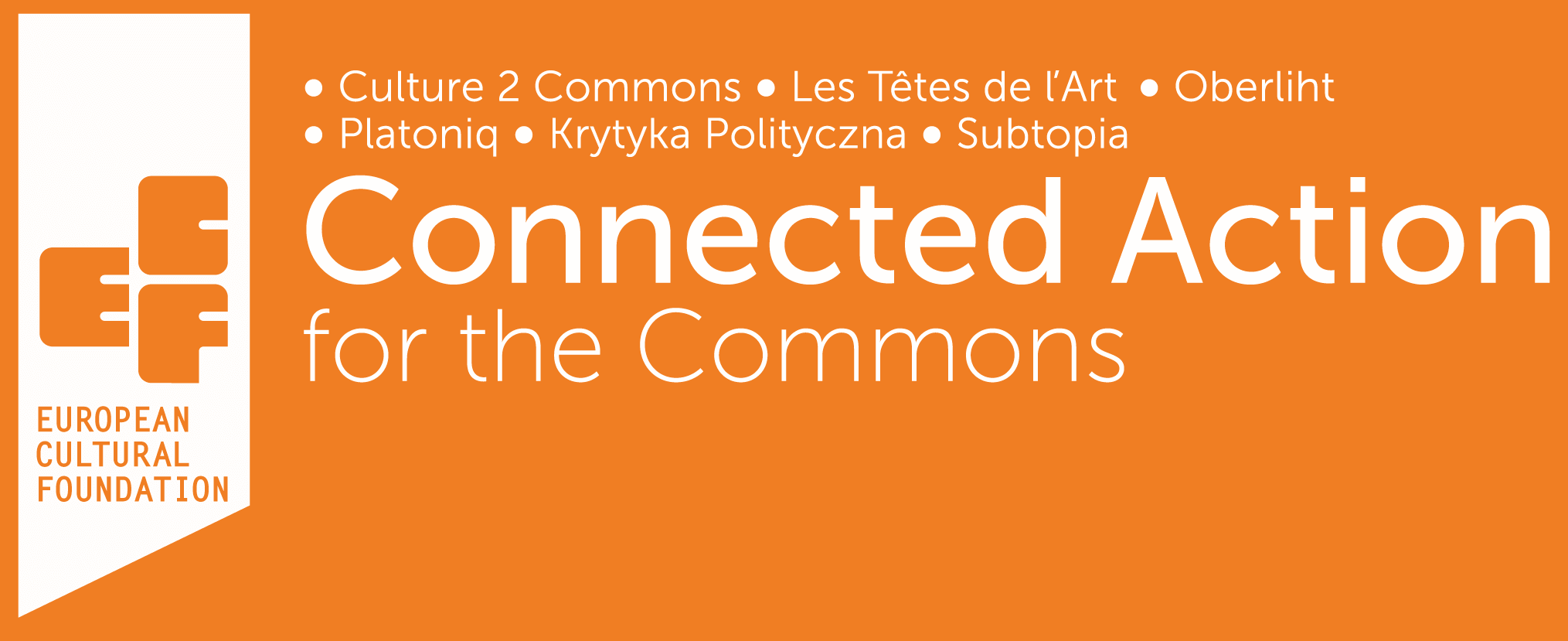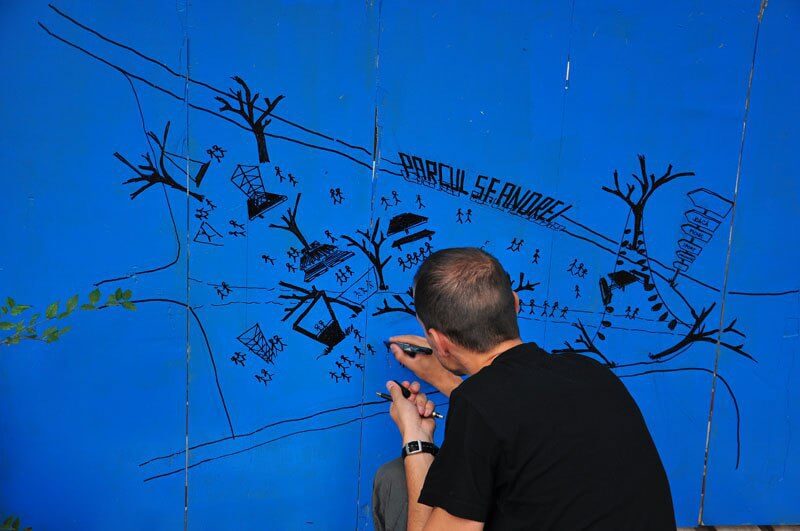Yet the open dynamics of the event, taking place at a particularly difficult moment in the history of the city of Chişinău in particular and Moldova in general, were balanced between what could be called defensive efforts around mapped commons and the articulation of different visions for the city, not in the least thanks to the emergence of new creative groups who answered Oberliht’s public call and shared their projects.
One thing that cannot be overemphasized is the importance of all the efforts put into taking care of the three spaces which are open to the visiting public and local communities and which have become key references of Chişinău’s independent cultural scene, creating thus an alternative map of the city itself: the Flat Space, the Zaikin Park, and the Gallery Zpace.
In fact, in the context of an open flow of participants between these and other reclaimed spaces, numerous discussions revolved already around the idea of recreating conceptually the city, by being able to reclaim a different material base, so to speak, whether by focusing on the inherent freedom of the places around local rivers, as in the animated works of Ghenadie Popescu , on the symbolic power of local urban legends and development plans which remained virtual (see Max Cuzmenco: https://chisineu.wordpress.com/atlas/subteran/), or by going through the process of conceiving and installing the first monument of a nonhuman being, as in Martin Zet’s and the Architecture Laboratory MIEZ’s Monument for a Community Dog in Chişinău .
The experience of the latter is particularly relevant. As Andrei Vatamaniuc recalled, the monument started from a meditation on urban desertion and abandonment, but continued by doing the work of rehabilitating a small park, the work of opening the doors and running through the red tape of both the Ministry of Culture and the Municipal Council, and the work of creating a dialog platform with the animal rights activists – which failed as a consensus mechanism yet underlined other solidarities. In the process, the artists, architects and activists involved were able to compare their emergent vision on contributing to the identity of the city, with the specificities of the institutional process and internal life of the city. Together, these experiences made possible to ask a very important question: what are the resources available for rehabilitating the autonomous symbolical life of the city?
The first public discussion held then at the Guguţă Café was also indicative of such efforts of reclaiming the city commons by focusing on symbolic spaces – especially poignant in a situation in which the neoliberal domination of the public spaces is in a crisis of legitimisation. Guguţă Café was formerly a popular place of encounters and public parlance, in the middle of the downtown public park, which has been in the past decade a closed ruin, subjected to an attempt of being demolished and turned into a luxurious high-rise hotel.
The local activists have succeeded in stopping this project, yet the success in itself emphasized the bigger issue of the aggressive process of appropriation and encroachment of public spaces (especially the public parks and lakes of Chişinău), at the hand of associations between private moneyed interests and corrupt officials. In this sense, the parallel Corruption Tour of Chişinău, produced together with Mihai Goţiu, offered a necessary view of the dark side of the city, so to speak, which also indicated possible points of interest for future interventions and acts of reclaiming the city.
The historical first public discussion at Guguţă Café took place as passersby minded their routines, walking through Chişinău’s central public park at a leisurely pace, turning with open yet cautious ears and eyes to the events around them. The Corruption Tour took place while official and unofficial powers minded their own agendas for the future of the city.
The struggles for the commons in Chişinău confirm that the work at instituting a different vision of the city for its inhabitants has to go, beyond the issues of mobilization and participation, through an explicit process of developing defenses of the current achievements, as fragile as they are, as shown literally in Angela Candu’s work at Zaikin Park, The Defensive Tree (see below) as well as through the crucial work at rehabilitating the symbolical forces of the city.

